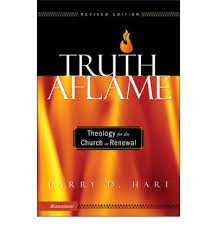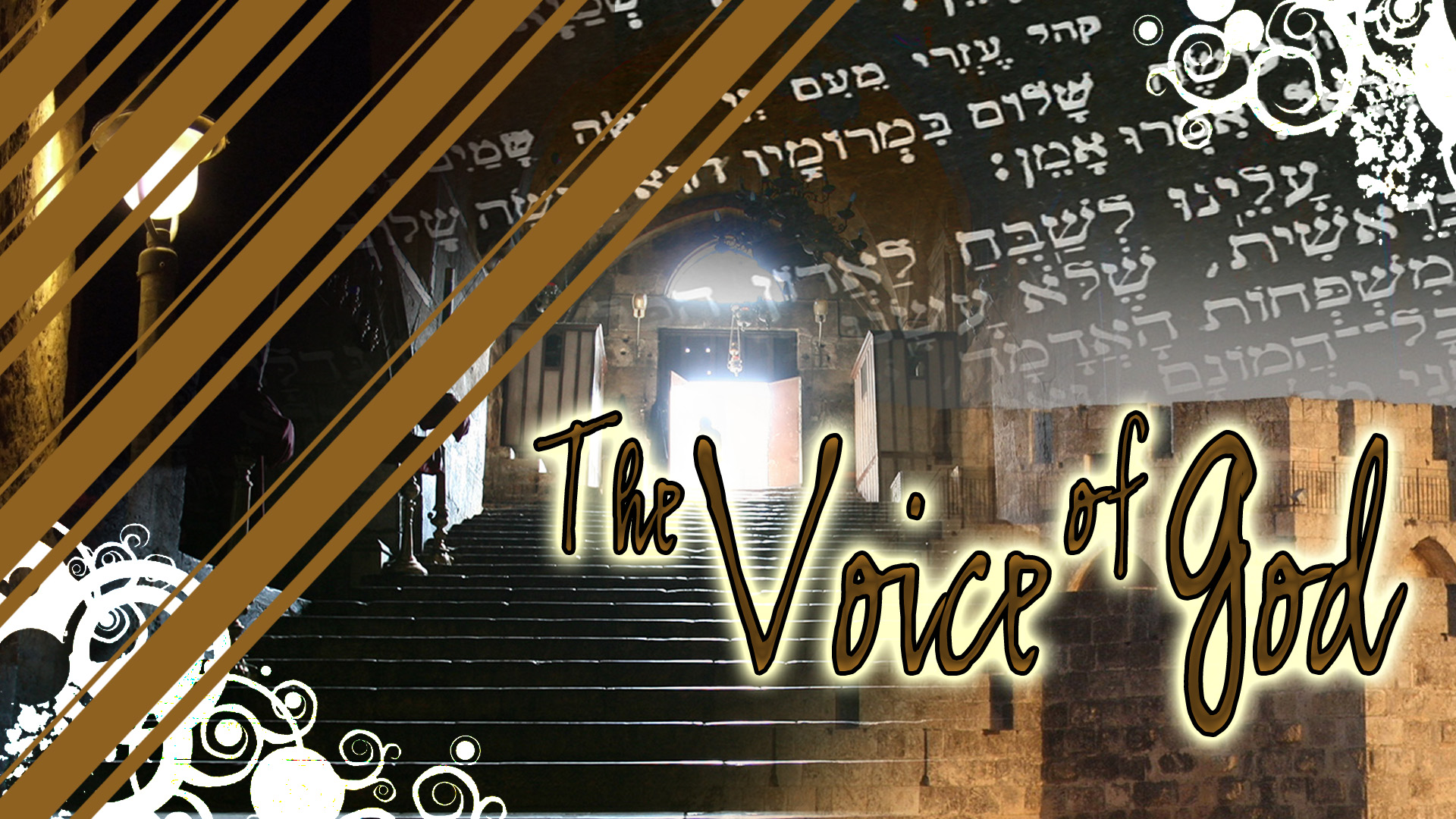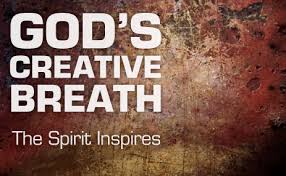This is a paper I submitted for my systematic theology class.

To begin my address, I must ask you several pertinent questions: Why is Christian theology and Christian worldview important?
What we believe about God and His creation, will affect the view we hold of His creation, and our purpose here in this life. If we believe we descended from the primordial ooze of an amoeba, and evolved through the planet of the apes, our life has no more meaning than that of a bug or a worm. As the Buddhists practice, perhaps we may be reincarnated as a higher life form, and eventually reach the state of Nirvana. No, we are created by an Almighty God, in His image, to rule and reign both in this lifetime, but for specific purpose, destiny, and greatness, now in this life, and in preparation for our life with Him throughout eternity.
How do we derive true knowledge of God?
We derive all true knowledge of God from several sources that stem from the Bible as the written Word of God, and the living presence of God in the earth, mighty Holy Spirit. As we learn of Jesus, the truth, we discover Him historically, Biblically, and through the contemporary theologies of the church; intimately, personally, experientially through that living, abiding, vital union with Him through Holy Spirit, Emmanuel, God in the earth.
What are the distinctive features of the Christian view of God?
Clearly, men and devils have been imagining many diverse religious in attempts to describe, worship, and please God, but ultimately, the founders and teachers of all these great teachings, Mohammed, Buddha, Confucius, and all others are dead and their bodies lie in the ground to this day. Not our Jesus! He rose from the dead, and He is alive. This separates Christianity from any other religion ever invented by man.
All the world’s religions are men’s rules and regulations: works designed by men to reach out to God. When Jesus died upon the cross, paid the price with His own blood for all the sin of humanity, and rose victoriously over death, hell and the grave, then ascended bodily back into heaven, we have a religion that is no longer man’s attempt to reach God, but a gospel that describes God’s attempt to meet with a broken and fallen humanity. What men think about Jesus is nowhere near as important as what God thinks about Him. He has accepted His sacrifice for our sins, and heaven bears witness to this fact everywhere the gospel is preached, with signs, wonders and acts of heavenly power.
Jesus did not come to make bad people good, nor good people better: He came to make dead people ALIVE. Except a man be born-again, we cannot even see the kingdom of God.
So then, how can one believe in God as the Creator in the face of the challenges of contemporary science?
God is the Creator, and His fingerprints are all over His Creation. True science testifies of His Creation, His design itself in the complexity of His Creation show clearly that where there is a design, there is a designer. From the order of the universe, to the complexity of DNA chains inside of cells we see the beauty of His carefully planned creation. The great scientists themselves premised their research on the existence and intelligent design of God: “Gravity may put the planets into motion, but without the divine Power, it could never put them into such a circulating motion as they have about the Sun; and therefore, for this as well as other reasons, I am compelled to ascribe the frame of this System to an intelligent Agent. Sir Isaac Newton.

Most great scientists begin their research with a belief in God: Albert Einstein himself makes the famous quote: “Science without religion is lame, religion without science is blind.”
There are seven main schools of thought on the creation, and the intersection between science and theology in the origin of the universe. Stay on the edge of your seats folks, for we will look at these in more depth, later.
What constitutes the uniqueness of humanity in relation to the rest of the created order?
In our Christian worldview, we discover that humanity is different than the rest of creation, in that the Bible declares we are created in the very image and likeness of God. You have never seen a monkey build a temple and worship God, for only humanity has the desire and ability to truly know and worship God in spirit and in truth.
So what is theology and why do we need it anyway?
Since the study of theology includes what we believe about God, life and everything else, the question that must be asked is: “Am I a theologian?”
Theology definition: ‘Theo’= God, ‘Logos’ = A Word – Theology then, is a word or a rational thought about God and all that He has made.
Our theology then, is what we know about God, and will dictate our response to Him in every area of life. It creates our beliefs and behavior, it determines our ethics, affects our knowledge and resulting behavior, It must be established upon the Bible and be coherent, explicatory, and include the full counsel of God, the entire canon of Scripture from Genesis to Revelation.
Though the world is full of religions created through the imaginations of men, it is only through Jesus one can come to the Father, and so the main thrust of our theological study must be grounded in the death, burial and resurrection of Jesus, centered upon Christ, aware of spiritual warfare, and motivated through dependant prayer, in relationship with the ecclesiatia, the church of the living God lived out in community here in the earth. While surely God has given the cultures, languages, and nationalities of the earth, true theology must be based upon the culture of heaven, a kingdom that supersedes every earthly culture, based upon absolute truth that has the power to transform and lift any culture currently existing.
In the formal study then of Christian theology, we discover Biblical theology, that is the teachings of the entire Bible, both Old and New testaments, Historical theology that traces what the church has taught through the centuries, while Contempory theology studies the theology of recent decades.
For us who love Jesus, He is the center of all History, the Bible, our faith and our actions in this generation as He works His plan and purpose out in the earth, at this time in History.

Jesus is history, for all of time is HIS story, God’s plan for humanity and all creation revealed. He is Jewish, the Messiah, Lion of the Tribe of Judah, King of Israel, Lord of His church, and every living thing, whether pagan or Christian, for truly He has poured out his Spirit upon all flesh, and He is well able to harden the hearts of the wicked, that He be glorified in their destruction (Ex 14:4)
As we study Christian theology then, we discover God through the Scriptures, and the godly traditions of the church: apostolic and ecclesiastical that either develop or distort those apostolic traditions given clearly in from the Scriptures.
The church then has given us two types of traditions: the creeds and the confessions. The creeds succinctly boil down the essential doctrines of Christianity, and can perhaps become a platform for Christian unity in the church universal, crossing denominational lines as we contend in prayer and ministry that we all come into a unity of the faith. Perhaps some of you have read my blog on this topic: https://www.chrisaomministries.com/2016/05/19/the-apostles-creed-a-platform-for-christian-unity/
Historically the church has separated itself into four main divisions: The ‘Spiritual’ reflected in Eastern Orthodoxy, the ‘Sacramental’ reflected in Catholism, the ‘Scriptural’ reflected in Protestant denominations, and the ‘Supernatural’ practiced in Pentecostal/Charismatic traditions.
Theology then, must be absolute truth and so has been polemical – a sword bring truth severing error and false teachings from the church, exegetical in bringing a systemized doctrine of the Bible, and catechetical to instruct young Christians before and after baptism.
Over the centuries transformers and translators have arisen to lead God’s people, revivalists to bring passion and fire back to the work of God, historians that keep the work clean, holy, and established in truth.
Over the centuries, many volumes of literature have been written by great scholars creating categories of theology such as liberalism, fundamentalism, evangelism, neo-orthodoxy, various radical theologies, liberation theologies, post liberal theology, and Pentecostal/charismatic.
The serious student of the Word of God must at least familiarize oneself with all these schools of thought, for the old adage is true: ‘Those who do not learn from history are doomed to repeat it.’
Now we come to the topic: Revelation: How God makes Himself known!
How do we know God personally, not just about Him?
Let’s look at the simple definition of “Revelation” – It means “an uncovering or unveiling”

General revelation to all people, at all times, in all places – this is God revealed through the creation and the conscience.
Then there is special revelation, which is the gospel or saving revelation, the revelation to Israel as recorded in the OT, the revelation to the early church recorded in the Old Testament and History, the Bible and Jesus Christ.
There is much variety in the ways God practically reveals Himself: ask Native Americans how they experience God through Creation, and ask a businessman how God reveals himself through his conscience!
Throughout time special revelation has been given in the form of prophetic words, dreams, visions, miraculous acts of God in the earth (the Exodus, the water from a rock, the fire descended upon mount Sinai, the manna in the desert to name a few in the Old Testament)
The Greatest revelation given to humanity, is the Bible, the inspired word of God – written revelation, his authority, inspiration, infallible, inerrant revelation of heaven, ‘breathed out’, for every generation to read, that we might know Him not just experientially, but through the firm foundations of truth beautifully expressed in the Word of God,
Psalm 119:89 Forever, O Lord, thy word is settled in heaven.

Now, in this book, we have the privilege of establishing this very word here, in the earth, in our generation. It is a blood-sworn oath, signed, sealed and delivered by the eternal blood of the Lamb, Jesus Himself, given to govern and instruct us for all generations!
Scholars throughout the years have argued the nuances of the infallibility and inaccuracy of the Bible, yet the very fact that this book has stood the test of time, proves to me that God Himself has upheld and sustained it. Critics and scholars have fought and debated it, yet it remains, upheld by God Himself for all generations. Whether one subscribes to the school of thought of ‘absolute or detailed inerrancy’, ‘complete infallibility’, or ‘full inerrancy’, know this: Man will never judge the word of God. Rather, to it we must each give an account, individually fully accountable to its commands and precepts. On that day we breathe our final breath here in the earth, and close our eyes, we immediately open them before the throne of Jesus, to hear His eternal judgment of our earthly existence, and we will be judged by our response to Him and His Word and our obedience to it.
The great theologian Carl F.H. Henry in his book entitled ‘God, Revelation and authority’ offers fifteen theses on divine revelation beginning in divine initiative (creation) through to the end of the age, in the second coming of Christ (end times). The Spirit initiated the Scriptures, and reveals them to us, His saints, the church of the living God.
Revelation has not ceased as Clark Pinnock says: ‘We have in the ‘the spirit of revelation’, which causes the letter of the Bible to become the living voice of God to us.’

It is with this faith, that I address you today. Not to present to you a mere didactic treatise of the Word of God, but that the author of all theology Himself, would breath afresh upon you, personally, illuminating these truths expressed through these lips of clay, that you would experience Jesus life from heaven, practically, now, through precious Holy Spirits breath and presence.
So then, who is God, and what is He like?
How can we, the creation, as finite beings, fully understand our Creator: an infinite being?
Dealing adequately with the doctrine of God is like trying to empty the ocean with a teaspoon.
We know God only by way of the cross, the wisdom of God, foolishness to those who are perishing.
So we know God through His essence, His names, His attributes, and His triunity.
God is Spirit – this is His essence
God is light – describes His holiness
God is love – describes His love.
Theologians introduce two words to attempt to describe God: His immanence and transcendence: His immanence implying that God is ‘everywhere present’ within His created order. His transcendence describing how God ‘wholly other’ than, and ‘outside’ of the created order. He is holy. We discover wonderful words to attempt to describe Him: His Aseity: for God is self-existent (a se, of himself: underived existence). God is uncreated, uncaused, independent, and self-sufficient.’ In simplicity: God is one, indivisible, not a composite of parts. The doctrine of the trinity is informed in part by this truth.

God’s attributes are revealed through His names: He is the infinite, personal God, and His attributes are revealed through His glorious names. Philosophers have created their conceptual labels for God: Plato with his ‘Idea of God’, Aristotle calls Him ‘the prime mover’, Plotinus calls Him ‘One’, Hegel ‘the Absolute’, but these are not the names He has given us, that reveal to us His self-revelation, His revealed character, His entire reality.
In His plurality, many names He has given to us. Let us begin with ‘El,’ the general semantic name for God apparently derived for the root word meaning ‘power’. This is the oldest known designation for God in the ancient world, and connotes strength, power, authority, control, majesty, transcendence.
From this root we derive more well known names like: El Shaddai – literally ‘the multi-breasted one’ or ‘the source’, the creator and sustainer of the universe, initiator and keeper of the covenant, connoting strength, stability, permanence; in the poetic sense: majestic stability, reliable refuge, unmoved pillar, and is the bridge between Elohim and Yahweh.
We then find El Elyon: ‘The Most High God’, pointing to His supremacy and omnipotence.
El Roi – The God who sees – He sees, He knows, He cares, and He responds to us in our need with compassion.
El – Olam – The Everlasting God or the God of Eternity – His sovereignty continues from age to age.
Elohim – The first name for God encountered in the Bible, in one version the Scripture reads: ‘Let us…’ This is Elohim, the first indication of the Trinity, a plural noun used with a singular verb or adjective.
Then there is Yahweh – His most important and holy name, His covenant name. The name certain orthodox Jews still refuse to utter, for it is holy. Reminds me of the testimony of my native American friends who went to Israel, and spent eight hours giving gifts to the Knesset members, in joyful worship and celebration with their covenant with Israel through Yeshua.
As they left in ceremony and dance, proceeding down the streets of Jerusalem in joyful song in the Spirit, a platoon of Israelite warrior soldiers joined them waving their rifles in the air, shouting before the Lord as they danced down the street in ecstatic praise and worship. When it ended, one of the Jewish soldiers exclaimed: ‘You sing in our language!” The natives, who had been lost in the Holy Ghost said: “What? What were we singing?” The soldiers replied: “You sang in high, formal Hebrew, Yahweh, the name forbidden to utter, yet you proclaimed our God and we knew He alone could have sent you”. To this day, the elders and leaders who participated that day still are in awe and humbled by the clear gift God alone gave them that day.
He is I AM!

There are combinations with this high and holy name given us: Yahweh-Jireh – the Lord who sees ahead and who provides. Yahweh-Rapha – The Lord who Heals, Yahweh-shalom – The Lord is Peace for truly Yeshua is the Prince of Peace and His kingdom is righteousness, joy and PEACE in the Holy Ghost!
Theos, Kurios, Father, Abba, are names that must be known and understood to complete a doctrine of God. These names point to His attributes, His personality, spirituality, sovereignty, Majesty, unity, holiness and love.
Theos – the New Testament name most commonly used for God is equivalent to El and Elohim in the Old Testament.
Kurios – the name given to us by the Septuagint is used to translate both the OT Adonai and Yahweh, and is used to refer to both our heavenly Father and Jesus.
The Father, our Father, Abba, Daddy, our intimate heavenly Father, the only one who can provide true confidence, security, reverence, and who must be obeyed!
In His names we discover His attributes:
His wrath tempered by His mercy, His Righteousness contrasted by His faithfulness, and on it goes, as His attributes are revealed, we find ourselves in deeper pursuit of Him, deeper worship, as our understanding deepens.
And so Jesus has come, full of grace and truth!

In Gods Holiness we see purity, ethical and moral holiness, His just wrath against sin, His perfect righteousness revealed in both Jesus atonement and His dealing with mankind. He is ALL Mighty, His power displayed through creation, redemption, and His miraculous acts to this day. Is anything too hard for the LORD!
So now I will explain to you the Trinity, so simply a child can understand by asking you a simple riddle:
Why is God like a clover leaf?
Well, we have one leaf, with three separate and distinct parts. If you look closely, we see the sap inside the stem goes to all three parts of the leaf. There is one leaf, but the sap goes to each part equally, similar to the mystery of the Trinity. There is one true God, yet He is revealed in three very separate and distinct persons, God the Father, God the Son, and God the Holy Spirit.
Ok, so why is a four-leaf clover good luck? Must be my Irish background speaking? Well, four leaf clovers are rare, and considered special by many, as are true Christians, the bride of Christ, grafted into the vine of God’s Spirit and love by the precious blood of Jesus Himself. The four leave is like the Church of the Living God, grafted into the Godhead Himself.
We saw in Genesis, the Trinity’s revelation to us being prepared, in the translators words, Let us create!
God creates, and we who are created in His image, create too! https://chrisaomministries.wordpress.com/2015/02/05/let-your-spirit-free/
Clearly all three persons of the Godhead were involved in Creation, Redemption, and now in the age of grace where the church is designed to reign victorious.
There is a need for theologians to dig deep into this doctrine, and mystery to avoid heresies that have crept up repeatedly over the ages of church history: dynamic Monarchianism (adoptionism),
Modalistic Monarchianism (Sabellianism), and Arianism from which stems the teachings of the Jehovah Witness cult today.
Many church fathers championed the doctrine of the Trinity: Athanasius, the Cappadocian Fathers, and John of Damascus.
The doctrine of the Trinity states: The Triune God is one God who exists eternally a three infinite,
Eternal, interpenetrating persons: Father, Son and Holy Spirit…
Thoughtful theologians have dug deep into the Word of God and given us elaboration on this essential doctrine, and come up with terms like: perichoretic Union (God cannot be divided into parts) versus Economic Trinity=Ontological Trinity
The Council of Constantinople in 381AD came up with a theology I agree with, that God is one substance (Ousis) yet three separate and distinct persons: (Hypostases)
This produced some problematic areas of doctrine that resulted in three main approaches to the doctrine: the Greek, Latin and Contemporary. Each has strengths and tendencies towards different heresies, but I lean most towards the Latin approach, which starts with the one divine nature which is equal in all three persons. Extremes in this teaching can err on the side of Modalism that is the thinking of a being that can “morph”, a “shape shifter” from one form into another. There is only one being at any one time. Modalism views God as a being that has three different forms, but is not One, as Scripture declares.
In the study of the doctrine of God then the basic question is clear: Are faith and reason compatible?
Were we created or did we come from nothing as Nihilism taught by Nietzsche?
While my undergraduate degree was in engineering, my actual degree title is Bachelor of Integrated Science, where I integrated my study of mechanical engineering with a minor in philosophy. I am grateful to God that I did, for in my search for truth, I found Jesus.
I like the words of Sir Francis Bacon then in refuting atheism (and Nietzsche) “”It is true, that a little philosophy inclineth man’s mind to atheism, but depth in philosophy bringeth men’s minds about to religion; for while the mind of man looketh upon second causes scattered, it may sometimes rest in them, and go no further; but when it beholdeth the chain of them confederate, and linked together, it must needs fly to Providence and Deity.”
So then we discover there are five basis for faith:
The Experimental Basis – it works, so let’s believe – this the pragmatic or utilitarian view.
The Experiential – There are no atheists in foxholes, God can be experienced.
The Cosmic Basis, that is general revelation through creation, cosmology, teleological
Historical: Special Revelation of Gods acts and revelation throughout History
The Community Basis: The church
The Five Classic Theological Arguments then are:
The Ontological Argument – God is innate, the epitome of morality,
The Cosmological Argument – that is the first cause – every event has a cause, and God is the first cause of everything.
The Teleological Argument – If there is a design, there is a designer
The Moral Argument – There is an innate ‘right and wrong’, moral absolutes.
The Experiential Argument – God can be known and experienced.
This then concludes our brief survey of the doctrine of God
Let us then, look at the doctrine of Creation, a very important doctrine, from this doctrine all other doctrines are built:
One of my colleagues and professors at seminary at Oral Roberts University makes the statement, and I quote:“This doctrine in its fullest expression is an important distinctive of Christianity – a distinctive that sets it apart from every other world religion and philosophical outlook.” Dr Larry Hart
The doctrine of creation has been articulated over the years by academics and scholars into three main categories: Dualism, Monism, and Theism.
Dualism or “Spirit/Matter” This is the thought that Spirit which is good, exists with matter which is evil, and these are locked into eternal conflict kind of like Star Wars with the good and bad side’s of ‘the force.” Then there is Monism – where God is everything and creation emanates from His being. We are a ‘chunk’ of God. Our very finitude is the source of evil, and it is a position with no ultimate hope. The final doctrine, is the Biblical doctrine of Creation, and it is fun, inspiring. As we look around us at the beauty and wonder of all that God has created, it fills us with a sense of awe.
God spoke, and it was (and still is, and is still reproducing and goes on, and on, and on)
God created a perfect universe and it was good.
Man fell, and creation has been marred.
Jesus came to redeem humanity, and humanity participates with Him in the redemption and recreation of the earth.
Jesus Himself pointed to the creation’s beauty to reveal the Father – look at the lilies, the sparrow…God, the one true and living God, created all things, and despite centuries of sin, war, heartache and death upon this planet, we still behold the beauty of His creation in it.
I love the literary framework of Genesis chapter one: God formed things, and then He filled them. There were days of forming v 9: On Day three God created continents and oceans, on days five and six, He filled them.

In studying creation we find that there are seven theories of origins:
- The Gap Theory: There is a gap of undetermined time between Gen 1:1 and Gen 1:2
- The Flood Theory: Flood geology. Flood geology (also creation geology or diluvial geology) is the attempt to interpret and reconcile geological features of the Earth in accordance with a literal belief in the global flood described in Genesis 6–8. There are problems with this interpretation, as the sedimentary evidence does not support factually what this theory attempts to ascertain.
- The Pictorial or Revelatory Day Theory: The six days of creation are days of revelation, not actual days of creation.
- The Appearance of Age Theory – Did Adam and Eve have a belly button at creation? Did trees have rings? Scholars argue that they probably did, which made the creation appear old when it was created, although it might not be.
- Theistic Evolution –Intelligent design. The Bible tells us who created the universe, evolution tells us how.
- The Day Age Theory – The concept taken from 2 Peter 3:8 But, beloved, be not ignorant of this one thing, that one day is with the Lord as a thousand years, and a thousand years as one day. That the days described in creation may be eons of time, not literal twenty four hour days.
- The Creationomic Perspective –Closely related to progressive creationism, or intelligent design theory asserting that God is involved in the on-going creation that: “Divine action ought always to be the matter of primary importance, with natural process as the secondary or contingent reality.”
Ultimately, God is the Creator who created and still sustains and recreates His creation. This is shown historically in His acts of power, (water from a rock, causing the desert to bloom as a rose, Jesus mastering the winds and the waves)
So then, what about the doctrine of humanity? Who are we? Why are we here? What does it mean to be created in God’s image?
Read with me if you will: Psalm 8 :KJV 5 For thou hast made him a little lower than the angels, and hast crowned him with glory and honor.
Many translators mis-translate this verse for the word here ‘angels’ is ‘Elohim’.
We have been created a little lower than Elohim! American Standard Version got it right!
Ps 8:5 ASV For thou hast made him but little lower than God, And crownest him with glory and honor.
We are created in the image and likeness of God!
Charles Darwin and His evolutionary theory tried to define humanity in relation to the creation, through natural selection, but this is only a kernel of truth. We are not defined by the creation, rather we are defined by the Creator, and are made in His image!
Karl Marx tried to define man in relation to the social order, subordinating the individual to ‘society’. It is a beautiful philosophy, but it did not take into account the fallen, sinful nature of man.
I still remember God bursting my personal bubble in this regard. I competed in triathlon, and swam on the varsity swim team during my undergraduate degree. I majored in robotic engineering, and read Science fiction novels by Isaac Asimov, and loved the philosophy of Ayn Rand called objectivism. I was going to automate industry with my knowledge, and take the sweat and grind away from humanities daily toil, I designed the robot arm of my dreams for my honors assignment, was given nine job offers in the robotics industry, and in my bright bubble of selfish individualism, I flew three thousand miles away to Victoria, British Columbia to begin my career with Robotic Systems International. Yes, I would create a utopian world, where people would only have to work four to six hours per day, so they would have more time for art, academic study, exercise, leisure, and exploration of this planet and outer space.
Yet, during my first week there, I read a trade journal article about an automotive plant that had been fully automated. In the corresponding newspaper article, I read of how fifteen hundred employees had been laid-off, some of whom had been employed at that plant for twenty years, and my conscience was troubled.
Then, several months later, the research and development funding for our company was cut, and the company immediately laid-off eighty four engineers, myself included.
So, I took a position across the Juan de Fuca straight in the big city of Vancouver, BC, to help design targeting stations for a cyclotron that produced radioactive isotopes for treatment of Thyroid cancer, only to discover that regularly scheduled maintenance on the equipment had not been performed in ten years, and the copper lines that provided the cooling water to the unit decayed, and leaked, threatening to pollute the public water system with radioactive waste. We shut the machine down, and worked around the clock for forty days replacing the damaged lines, and instead of being heralded as heroes, corporate head office used the head of our department as a scapegoat for their lost production and revenue, and he resigned to take a position in academia, while we were consigned to a basement lab, under strict orders to not disclose how severely environmentally dangerous the situation could have become.
To make a long story short, my philosophy did not survive my reality. There is sin in humanity, a fallen nature that must be reckoned with, and that can only be overcome through the shed blood of Jesus Christ, and His resurrection power.
Freud attempts to define humanity in terms of our sexuality, but that old pervert cannot use his descriptions of the Id, the ego, and the superego to dance around the truth of creation. We are not mere creatures motivated by our mere base instincts; we are called to be children of the most High God, people of purpose and destiny for the pleasure and glory of God.
There have been different philosophies developed over the years:
Existentialism – a philosophical theory or approach that emphasizes the existence of the individual person as a free and responsible agent determining their own development through acts of the will
The teachings of Karl Barth try to explain humankind as God’s covenant partner, even after man’s irrational choice of sin, Moltman sees value in biological, cultural, and religious anthropology as they provide insight into the nature of human existence. Pannengerg, and his philosophy of openness, the new age spiritualities, and the community model constructed through the thinking of postmodernism, are not sufficient in and of themselves to define humanity, and the incredible creation God has made us to be.
Adam and Even in the garden, in pristine perfection, should cause breath-taking awe and wonder in our minds as we consider the beauty and majesty of our God in His plan.
Adam, the man from red earth, the man of blood, as in the crushing of a grape, the shed blood – in creation, in the Hebrew roots, we discover the mystery of the fall and the redemption that only the last or ‘second Adam’ could provide.
Eve – the mother of all living, taken from Adam’s side, close to his heart, a part of his very spirit formed to create the second best love story of all eternity, surpassed only by the romance between Jesus and His bride, the church of the living God.
Humanity – Imago Dei – the image of God in Creation, the image of God in Christ, the Image of God in a Christian.
We are neither angels nor animals, we are fallen yet redeemed, living souls comprised of both spirit and physical attributes, related to God, people and nature.
Though we came from the dust, the dust is not our ending. The Ruach, the breath of God inside of us declares that there must be a bodily resurrection; the dead in Christ shall rise to meet the Lord in the air!
God is Trinity, and so is humanity: spirit, soul (or mind) and body. as described in 1 Thess 5:23, and Heb 4:12.
Though some theologians dispute the triune nature of man, and speak of the ‘soul’ I do not. We are a spirit, which has a soul and lives in a body. It is the spirit that becomes regenerated in the born-again experience, or second birth, while the soul, (our mind will and emotions) must be renewed in the spirit of our mind, or transformed in the renewing of our minds as Paul attests (Eph 4:23, Rom 12:1,2).
To complete this course of study, I end with a famous quote by CS Lewis that seems appropriate here: “Yes, humanity has fallen, but we should not marvel at the depth of degradation we find the human condition in, rather, in light of Christ’s death, burial, and resurrection, we should marvel at how little humanity has attaining in light of what heaven has made available to us!”




